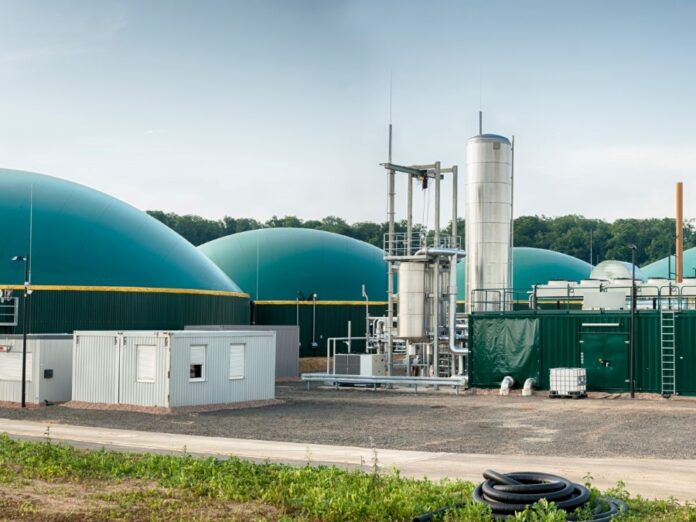A recent study by Robin, T., & Ehimen, E. (2024) titled “Exploring the Potential Role of Decentralized Biogas Plants in Meeting Energy Needs in Sub-Saharan African Countries: a Techno-Economic Systems Analysis” published in the Sustainable Energy Research by Springer Link shows that feasibility of biogas technology is highly influenced by national economic factors like inflation, electricity prices, and construction material costs.
“
Decentralized biogas plants can be economically viable and environmentally beneficial, enhancing energy access in rural Malawi.– Robin, T., & Ehimen, E. 2024
This article examines the potential of decentralized biogas plants to address energy needs in sub-Saharan Africa, focusing on Malawi as a case study. It assesses the feasibility of producing biogas through anaerobic digestion, considering various reactor sizes and feedstock options. The economic analysis reveals positive net present values when biogas and fertilizers are sold, depending on factors like national inflation and electricity prices. The study also emphasizes the environmental advantages of biogas production, including reduced deforestation and better waste management. Ultimately, the feasibility of such projects hinges on the broader economic conditions of the country.
How the Study was Conducted
The research focused on rural areas in Malawi, assuming households were not connected to the national grid and had an average of 4.5 people. Different scenarios were considered based on the number of cows owned and various feedstocks. The study examined different sizes of fixed dome reactors (3, 6, 12 m³) and various feedstocks like cow dung, human faeces, grass, and maize residue. The biogas production process and the efficiency of the reactors were analyzed. The economic feasibility was assessed using net present value (NPV) calculations, considering factors like inflation, electricity prices, and construction costs. Sensitivity analysis was performed to evaluate the impact of external economic fluctuations. The study calculated the environmental benefits, such as carbon dioxide savings, and examined the thermal energy produced by the reactors. The design and construction of the reactors were also detailed.
What the Authors Found
The authors found that co-generating cow dung and grass silage in a 12 m³ reactor with six cows yielded a positive NPV of $8962, demonstrating economic feasibility. Additionally, a 25% rise in electricity costs could transform the negative NPV of biogas generation from cow dung alone into a positive one. The overall feasibility of biogas technology is highly influenced by national economic factors like inflation, electricity prices, and construction material costs.
Why is this Important
Economic Feasibility: Demonstrating a positive net present value (NPV) for biogas production indicates that this technology can be economically viable. This is crucial for encouraging investment and adoption in rural areas.
Energy Access: By providing a sustainable and local source of energy, decentralized biogas plants can improve access to electricity for households not connected to the national grid. This can enhance the quality of life and support economic activities.
Environmental Benefits: The use of biogas reduces reliance on traditional biomass fuels like wood, which can help decrease deforestation and carbon emissions. This contributes to environmental conservation and climate change mitigation.
Income Generation: The sale of biogas and digestate (a byproduct used as fertilizer) can provide an additional source of income for rural households, helping to alleviate poverty.
Resilience to Economic Fluctuations: The sensitivity analysis shows that biogas technology can remain viable under varying economic conditions, such as changes in electricity prices and inflation. This resilience makes it a reliable energy solution.
What the Authors Recommend
- The authors suggest promoting biogas technology in rural areas to improve energy access and economic conditions. This includes raising awareness and providing education on the benefits and operation of biogas plants.
- The authors advocate for government policies and incentives to support the adoption of biogas technology. This could include subsidies for construction materials, tax incentives, and financial support for households and communities.
- The study recommends ongoing research to optimize biogas production processes and improve the efficiency of reactors. This includes exploring different feedstocks and reactor designs to maximize output and economic benefits.
- The authors highlight the importance of integrating biogas production with agricultural practices. Using agricultural residues and animal waste as feedstocks can enhance the sustainability and economic viability of biogas plants.
- The authors emphasize the need for community-based approaches to biogas plant implementation. Engaging local communities in the planning, construction, and operation of biogas plants can ensure long-term success and sustainability.
In conclusion, the study on decentralized biogas plants in Malawi highlights a promising pathway to meet energy needs while simultaneously addressing economic and environmental challenges. By leveraging locally available feedstocks and optimizing reactor designs, biogas technology can significantly improve energy access for rural communities, fostering sustainable development and resilience against economic fluctuations. The positive net present values obtained from various scenarios underscore the economic viability of biogas production, making it an attractive investment opportunity. Furthermore, the environmental advantages, including reduced deforestation and improved waste management, position biogas as a crucial player in combating climate change. By promoting awareness, supporting policy initiatives, and engaging local communities, stakeholders can effectively harness potential of biogas technology to create a more sustainable and prosperous future for sub-Saharan Africa.
















 The African Research (AR) Index is a comprehensive scholarly directory and database focused explicitly on journal publishers that publish and disseminate African research.
The African Research (AR) Index is a comprehensive scholarly directory and database focused explicitly on journal publishers that publish and disseminate African research.

